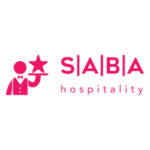 Wellness has tremendous potential for hotels, as is being made abundantly clear from the litany of articles on the matter in recent months. Part of that potential stems from the all-embracing, or rather ambiguous, definition of the word. It’s healthy eating; it’s spa; it’s fitness; it’s mindfulness; it’s sleep; it’s nature; it’s medical diagnostics; it’s all of the above. But one theme throughout for hotels is that the focus skews to the individual or one-on-one (mostly leisure transients), less so to group activations.
Wellness has tremendous potential for hotels, as is being made abundantly clear from the litany of articles on the matter in recent months. Part of that potential stems from the all-embracing, or rather ambiguous, definition of the word. It’s healthy eating; it’s spa; it’s fitness; it’s mindfulness; it’s sleep; it’s nature; it’s medical diagnostics; it’s all of the above. But one theme throughout for hotels is that the focus skews to the individual or one-on-one (mostly leisure transients), less so to group activations.
Here’s what’s common knowledge. On the leisure guest side, wellness amenities can protect rate through brand differentiation as well as boost ancillary spend (TRevPAR). With good marketing, value-added packaging and frictionless payment rails, these amenities can also be harnessed for business or bleisure guests, or to appease emerging segments like extended-stay digital nomads. Then for the back of house, employee wellbeing programming is becoming instrumental as a nonwage incentive to attract talent, minimize turnover and maximize productivity (for example, by reducing paid sick days and presenteeism).
On the backburner in this expansive conversation is how to make wellness work for corporate events and retreats, both to improve the effectiveness of those meetings for attendees as well as to activate a new revenue stream for the hotel. To find out from an expert on how this is done, we interviewed Ersin Pamuksuzer, founder of TheLifeCo, a leading detox wellness center and hotel resort brand based out of Turkey that has also built a successful, evergreen corporate events vertical over the past two decades.
The potential benefits for hotels
Before looking at how TheLifeCo approached this market and how to get underway with your own hospitality brand, let’s unpack the ‘why’ behind corporate wellness in terms of how your organization can benefit, which will then influence your go-to-market approach.
- Product differentiation. Lots of hotels offer meeting and events packages; it’s a competitive industry. While price and the negotiation skills of your sales team will always be top considerations, offering wellness add-ons helps a hotel stand out, both for buyer-side event planners who must whittle down the selection as well as for top-of-funnel product awareness.
- Increased per-event spend. All those wellness substitutions or add-ons work to justify a bigger contract. Some amenities like the spa, restaurant and gift boutique also have the potential to increase per-guest spend from those same corporate group visitors as each looks to enhance their individual stay during their downtime.
- Off-peak occupancies. Business travelers are the saving grace of midweek revenues throughout the world, and setting up wellness amenities can thus breed new life into seasonal properties by giving groups a reason to visit outside of peak.
- Upgraded room categories. Current room types can be remodeled with specific wellness amenities like air ionizers, herbal teas, circadian lighting, biohacking devices and health-focused minibars to generate higher nightly rates or as an incentive via packaging, prearrival upselling, error recovery events or complimentary upgrades to loyalty members.
- Auxiliary activations. With a successful onsite corporate wellness program comes the possibility of offering extensions to clients, either at their offices or as a cosponsored event at a place that’s more convenient for their workforce. Successful programming can also be productized and sold to other partnered hotels – for example, upgrading then cobranding a floor of guestrooms at a property in another city.
- Word of mouth throughout. In today’s world of perpetual noise and dwindling attention spans, you breakthrough not just with shrewd programmatic advertising or brute force media spends, but with memorable messaging. What we know, in a general sense, is that the more a guest uses a property, the more satisfied they are and the more likely they are to recommend to friends. As wellness increases this utilization, it follows that corporate wellness experiences will give your hotel yet one more avenue to maximize word of mouth, haloing back onto leisure performance.
Why corporate wellness right now
Numerous other sources have already shown over the past year that there’s been a broad shift in the nature of work since the pandemic ended. Most poignantly for knowledge workers is the sharp rise in awareness for mental health issues and the need for better work-life balance. As Pamuksuzer identified, companies still aren’t largely acknowledging the ‘context of the individual’ where any person, employee or executive, brings their personal issues into the job and this is inevitably reflected in their work.
And so we’re clear, here are the workforce costs associated with mental health issues:
• Low jobsite productivity and poor team communications
• More sick days taken and more absenteeism
• Employee burnout and increased turnover
• Managers leaving suddenly for no obvious reason, creating leadership gaps
• Decreased intrapreneurship and team empowerment
In medical circles, mental health is now often associated with psychoneuroimmunology – or as others like Deepak Chopra have termed the ‘bodymind’ – whereby emotional stress causes physical damage such as a depressed immune system or generalized lethargy. And the reverse is also true: bad diet or a lack of exercise can advance underlying mental health issues or lead to undesirable workplace moods.
Combining the scientific recognition for this profound body-brain connection along with the mounting problems of mental health and ‘talent-side pressure’ within the labor market, companies all over the world have a present-day need for employee wellness in order to keep their teams at maximum productivity. But luckily, they can now source professionals who can deploy medically proven techniques to ameliorate the issue.
Know and narrow the target buyers
Getting off the ground with any wellness venture is the hardest part, so it’s best to narrow the focus, both in terms of aligning the amenities or offerings with what your brand stands for as well as the specific type of customers you pursue. While mental health is currently at the forefront, the obstacle for sales is that many corporate leaders lag behind in doing something about it.
Instead, Pamuksuzer’s strategy has been to focus on those that already understand the benefits insofar as limiting the abovementioned drawbacks. Based on past performance, the business has largely come from high-margin companies with a mostly knowledge-based workforce. These prospects can be tech or finance, for instance, but they would probably come from the manufacturing sector. Still, as seeing is believing, it’s inevitable that other companies will follow once they see the results.
In the early 2000s, TheLifeCo started by offering full-day sessions at corporate offices (mostly in Istanbul) using its internal team of facilitators, with each centered around meditation classes to get people in a more placid state of mind followed by a strategy workshop. Often this involved carving out a dedicated space within the office or renting a nearby conference center as well as training a ‘wellness champion’ within each client organization who would help corral the troops to maximize each event’s success.
After executives saw the results of these onsite wellness seminars, they were far more receptive to the prospects of buying an offsite retreat package at one of the TheLifeCo’s properties – in Turkey, these being situated in Bodrum and Antalya. Pamuksuzer also invited HR directors down to a branded resort to personally experience the leisure amenities firsthand as a form of targeted familiarization trip.
The promise has always been that a multi-day offsite filled with wellbeing and business seminars elicits exponential gains for a company’s overall workforce productivity.
Corporate retreat programming
As for what actually happens at these offsites, each retreat is tailored to the individual client, but there is a turnkey curriculum underlying them all for cost efficiencies and proper staffing coordination. TheLifeCo deploys a variety of its leisure guest-focused services such as healthy F&B, supervised fasting, IV supplement administration and flexibility classes, which are then mixed in with professional development sessions on efficient communications, attaining a better work-life balance, finding one’s job purpose and passion negotiations.
It all starts by assessing each company’s needs and budget to then map out what each itinerary would look like. From there, TheLifeCo has developed a rolodex of trained facilitators and external partners who can deliver on any specific client request or scheduling requirement.
Significantly, once this wellness package is put together, the price tag is often double what the quote would be for a non-wellness corporate retreat. In other words, the revenues are there for the taking, but it is a matter of developing that groundswell of specific services, facilitators who can render those services and highly focused marketing for these offerings.
This article may not be reproduced without the expressed permission of the authors.

















